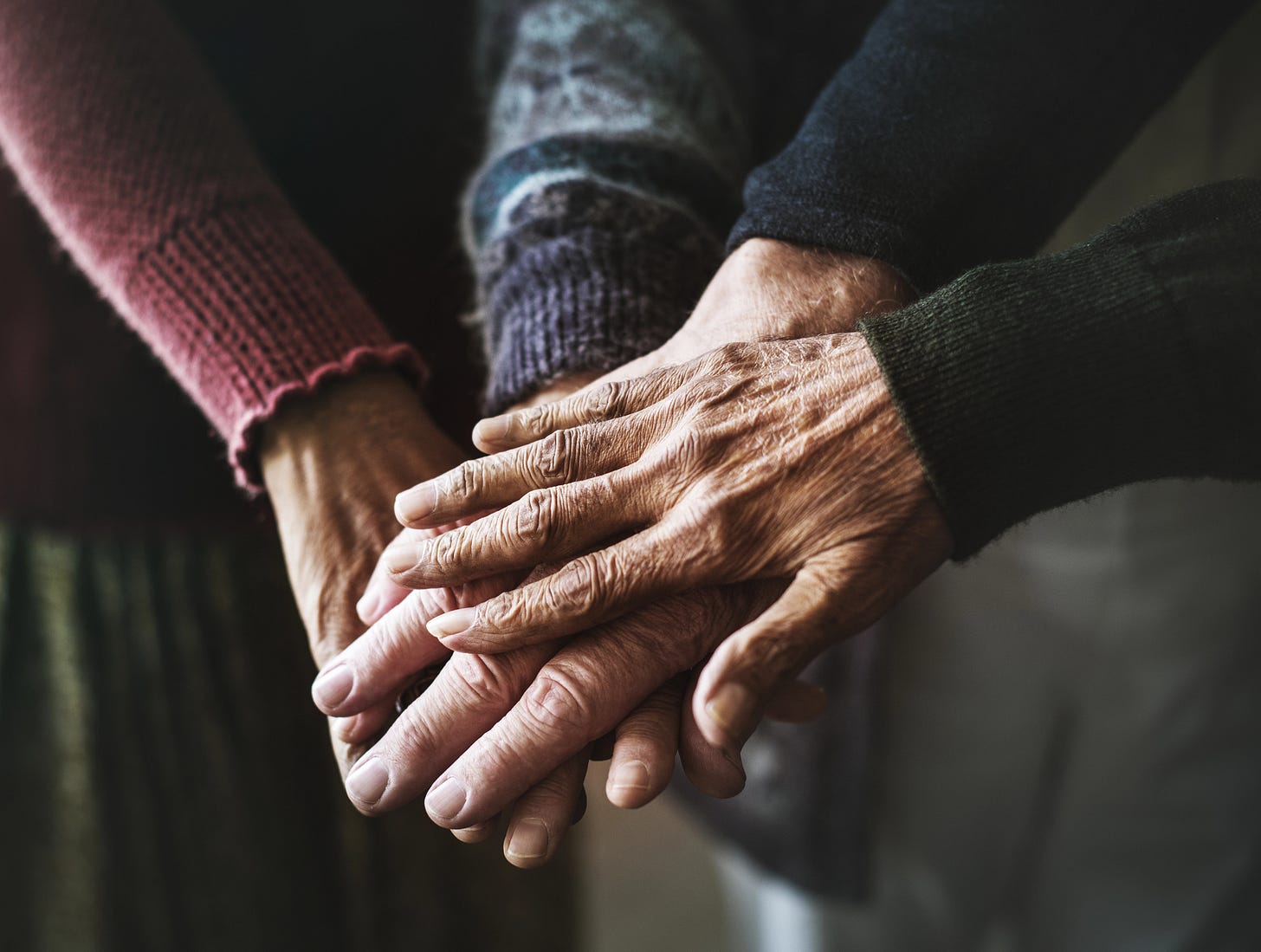It's Proven: You Live Longer When You Live a Life That Matters.
Taking a leaf out of the Blue Zones book.
Hi and welcome to your fortnightly free post from ‘Something More’. I’m Caroline Ferguson, mindset trainer, speaker, therapist and your companion on this wander down the lanes of mindset and personal leadership – with the odd story and bit of musing thrown in. Today’s a musing kind of day.
Are you familiar with Blue Zones?
Recently I came across an article about explorer and journalist Dan Buettner, who came up with the term Blue Zones to describe areas of the world where people live longer than average and have a good quality of life in their old age.
Fascinated by longevity, Dan and a team of scientists and demographics experts toured the globe, seeking out communities where people lived long, healthy and happy lives. They identified five regions that particularly fit the brief:
Island of Ikaria, Greece
Loma Linda, California (Seventh Day Adventists community)
Barbagia region of Sardinia, Italy
Island of Okinawa, Japan
Nicoya Peninsula, Costa Rica
During their research Dan and his team established that genetics had only a 20% influence on longevity. They looked for other evidence-based common denominators of a long and happy life and identified nine specific lifestyle habits that made a positive difference. These are:
1. Move naturally
We’re not talking about gym bunnies here. It’s about having an active lifestyle, with a wide range of functional movement, for example dancing, gardening and cleaning with non-mechanical tools.
2. Connect to your purpose
Did you know that having a sense of purpose – or as I call it, living your ‘something more’ – can add seven years to your life expectancy?
3. Release stress
It’s not possible to completely avoid stress in our lives but those who live longest tend to have routines or rituals that enable them to let go of stress.
4. Eighty percent rule
When we’re eating, it takes a little while for our stomach to send an ‘I’m full’ signal to our brain, meaning we often carry on eating past the point of actual fullness. Blue zone people stop eating when they’re 80% full. They have their evening meal early and don’t eat again until the following day.
5. Eat plants
Beans are a primary ingredient in the diets of those who live longest. They also stick to small portions and only eat meat a few times a month.
6. Drink wine
I found it interesting that moderate, regular drinkers (one to two glasses of red wine a day) live longer than teetotallers.
7. Belonging
Actively participating in a faith-based community can add years to life expectancy.
8. Prioritise your loved ones
Centenarians are more likely to make a commitment to a life partner and have a family that takes care of ageing relatives. This has a positive impact on all age groups.
9. Hold on to your tribe
Having a close, lasting, friendship group can support healthy behaviours, which helps people live longer.

How do you score on the longevity points?
I suggest we each take a look at the nine common denominators of healthy longevity and see where we might be able to make small adjustments to give us extra happy years of life.
For me, personally:
I’ve made changes in the last few years and believe I’m doing reasonably well on points 1, 2, and 3. Movement could do with a bit more focus. Two and a half points.
Re 4, 5 and 6, I’m pretty good at stopping eating before I’m full these days. My diet is three quarters vegetarian (lots of beans and pulses!) but I eat too late so I’m going to make an effort to eat small, early suppers. I don’t often drink alcohol now but I’ve just ordered a red wine box from a decent supplier so I can have the odd glass without the rest of it going off (let’s hope wine in boxes is better than the stuff I drank in my less than discerning youth). Two points.
# 7… I’m a recovering Catholic and, to be honest, none of the major religions will be getting my custom any time soon. I’m a member of a women’s group that has a strong focus on different types of spiritual (not religious!) expression, which is inspiring. I feel connected to something infinitely bigger than I am when out walking in nature and regularly have lovely chats with trees, rocks and animals. I know that’s not the same as regular communal worship, though. Half a point.
# 8, prioritising loved ones – I lead a nomadic life but plan regular gaps in my travels so I can spend focused time with my parents. Their long-term care is front of mind these days. Doing OK-ish, though lacking the permanent proximity of the Blue Zone communities. Half a point.
# 9 - I have a pretty strong friendship group that goes back to university days. A couple of years ago the wheels came off one of my most important friendships and it’s taking time, love and patience to figure out a way forward. Can it ever be the same again? I don’t have an answer to that, but it’s a precious relationship and one I don’t want to lose. Half a point.
My total comes to 6 out of 9 – not a bad score but there’s clearly room for improvement.
How did you get on? I’d love to hear in the comments how you fared and what, if anything, you’d like to adjust.
I would summarise the Blue Zone criteria in these three statements:
Look after your mental, physical and spiritual health.
Embrace and nurture family, friends and community.
Consciously pursue a life that matters.
Here at Something More we explore what ‘a life that matters’ might look like. My thinking is that it’s a life driven by an understanding of our values, a commitment to joy, acceptance of ourselves and others, and a focus on making a positive difference. (Re that last bit, I tend not to use the word ‘purpose’ with my clients, because it’s so loaded, but that’s really what we’re talking about).
My aim is to help subscribers build self-awareness and develop the mindset and self-leadership skills to help them get past whatever’s keeping them stuck, and become their ‘something more’.
Learn more about Blue Zones here. There’s also a documentary on Netflix, ‘Live to 100: Secrets of the Blue Zones’.
Our next live mindset training is this Wednesday 31st August.
This month we’ll be tackling imposter syndrome. Many, if not most of us, experience this horrible mental state from time to time. For an unlucky few, it’s so paralysing it can significantly hold them back, especially at work.
During the session on Wednesday (8pm UK time), we’ll delve into imposter syndrome and run through some effective tips to manage it when it threatens to sabotage you.
These monthly live sessions provide real value for paying subscribers so please do make use of them and the recordings. Don’t forget, you can ask me anything during the Q&A (which is not recorded). I’ll send out the Zoom link before Wednesday.
If you’re a free subscriber and would like to come along to our monthly mindset training sessions, hit the button:
Thank you for reading. Take care and see you soon,










